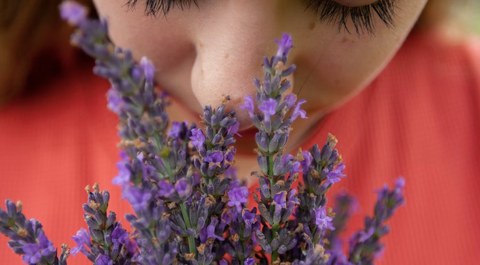The salon industry is no stranger to the constant evolution of consumer preferences and market trends. In an era of increasing competition and fast-paced technological advancements, staying ahead of the curve and capturing the hearts of clients has never been more challenging. To excel in the beauty and grooming sector, salon owners and marketers must turn to innovative strategies that resonate with their clients on a deeper, subconscious level. Enter neuromarketing – a dynamic discipline that amalgamates the realms of neuroscience, psychology, and marketing to decode the secrets of consumer behavior. This blog explores how neuromarketing can revolutionize the salon experience by tapping into the hidden dimensions of consumer decision-making and emotions.
Understanding the Subconscious
The essence of neuromarketing lies in the recognition that a significant portion of consumer choices is driven by unconscious and emotional factors, rather than purely rational considerations. When clients step into a salon, they aren't merely making logical choices based on facts and figures; they're embarking on a sensory journey that invokes feelings of self-care, transformation, and confidence. Neuromarketing delves into the realm of mirror neurons and emotional centers in the brain, seeking to understand how these mechanisms influence salon-goers.
Emotional Engagement
In the world of beauty and grooming, emotions are paramount. Clients don't just seek haircuts, facials, or spa treatments; they yearn for a heightened sense of well-being and self-assurance. Neuromarketing emphasizes the importance of understanding and harnessing these emotions. By crafting marketing strategies that evoke positive emotional responses, salons can build stronger connections with their clients. From enticing visuals to soothing music and even the subtle aroma of high-quality products, every element of the salon experience can be orchestrated to tug at the heartstrings of clients.
Memory and Recall
For salons, the key to long-lasting client relationships is to ensure that clients remember and recall their positive experiences. Neuromarketing takes this concept further by investigating strategies to make marketing content more memorable. It taps into the brain's memory systems to create experiences that clients won't easily forget. A visually stunning salon layout, a friendly and memorable staff, and the strategic use of colors and decor can all contribute to a lasting impression.
Color Psychology

Colors play a substantial role in the choice of products and services in the salon industry. The psychology of colors influences the mood and energy levels of clients, and, when used effectively, can guide clients towards certain choices. Neuromarketing allows salons to select colors thoughtfully, ensuring that they match the ambiance of the salon and align with the emotional responses they wish to evoke. For example, soothing shades of blue or green may create a relaxing atmosphere, while vibrant reds or pinks may add a touch of excitement and vibrancy.
Attention and Perception
Salons must captivate the attention of their clients and hold it throughout the experience. Neuromarketing offers insights into how clients allocate their attention and process sensory information. By studying these processes, salon marketers can design ads, service experiences, and products that effectively capture and maintain client attention. This may include the strategic placement of mirrors or appealing visuals that engage the client during their visit.
Consumer Behavior Prediction

Neuromarketing aims to predict and influence consumer behavior by analyzing how specific stimuli impact purchase decisions, brand loyalty, and overall preferences. In the salon context, this means understanding what drives clients to select certain treatments, products, or salon locations. By applying neuromarketing techniques, salon owners can make data-driven decisions to enhance their offerings and build stronger customer relationships.
Ethical Considerations
While the power of neuromarketing is evident, it also raises ethical questions. Salon owners must carefully consider the extent to which they should use neurological insights to influence clients. Ensuring privacy, transparency, and responsible manipulation-free marketing is crucial. The ethical application of neuromarketing principles is essential in building trust and maintaining long-term client relationships.
The Science of Scent

Aromatherapy is a holistic approach that involves the use of natural scents and essential oils to promote physical and emotional well-being. In the salon context, it can play a transformative role in shaping the client experience. Aromas can evoke a range of emotions, such as relaxation, invigoration, or even a sense of luxury, depending on the essential oils used. These scents can trigger positive memories or set the stage for the desired emotional state, making them an invaluable tool in the salon environment. Here's how the psychology of scent and aromatherapy can be leveraged to enhance the client experience:
- Elicit Positive Emotions: Scents have a direct connection to our emotions and memories. Aromatherapy can be used to trigger positive emotions, such as happiness, relaxation, and comfort. For example, lavender and chamomile scents are known for their calming and stress-reducing properties. By using these scents in a salon, clients are more likely to associate positive emotions with their visit.
- Enhance Client Comfort: The salon experience can often be associated with stress or discomfort, particularly when undergoing treatments like hair coloring or waxing. Aromatherapy can help clients feel more comfortable by reducing anxiety and increasing relaxation. This can lead to higher satisfaction and a greater likelihood of repeat visits.
- Strengthen Brand Image: Using specific aromatherapy blends that align with your salon's brand and image can reinforce that image in the minds of clients. For instance, if your salon emphasizes eco-friendliness and natural products, using scents like eucalyptus and citrus can create an association with freshness and cleanliness.
- Create a Unique Experience: Differentiate your salon from competitors by offering a unique sensory experience. The scent of your salon can become a defining characteristic that sets you apart and lingers in clients' memories.
- Influence Purchase Decisions: Aromatherapy can also influence clients' service choices. If a client associates a particular scent with relaxation and tranquility, they may be more inclined to opt for services that offer those scents, such as a massage or facial. This can lead to increased service sales.
- Word-of-Mouth Marketing: Satisfied clients are more likely to recommend your salon to others. When clients leave your salon with positive scent-associated memories, they are more likely to share their experience with friends and family, leading to word-of-mouth marketing.
To craft a truly enchanting and emotionally uplifting salon experience, you'll want to carefully select essential oils renowned for their exceptional aromatic properties. By thoughtfully blending these essential oils from Anita’s Aromatic, the visit to your salon will become a sensory journey, a harmonious symphony of scents that envelop clients in an oasis of calm and rejuvenation. Be sure to follow proper dilution and safety guidelines to provide an extraordinary aromatherapy experience in your salon.

- Lavender Essential Oil: Lavender is renowned for its calming and relaxation-inducing properties. In a salon, it can help clients de-stress and reduce anxiety, creating a serene environment. It's excellent for promoting a sense of well-being and emotional balance.
- Orange Essential Oil: Orange essential oil has a bright and uplifting scent. It can boost mood and energy levels, making clients feel refreshed and invigorated. It's ideal for creating a cheerful atmosphere in the salon.
- Peppermint Essential Oil: Peppermint oil is invigorating and can enhance mental clarity and focus. It's great for revitalizing clients and increasing alertness. In a salon, it can provide a fresh and stimulating ambiance.
- Geranium Essential Oil: Geranium essential oil is known for its balancing effects on emotions. It can help create a harmonious and soothing environment in the salon. Clients may feel emotionally grounded and content.
- Ylang-Ylang Essential Oil: Ylang-ylang has a sweet, floral scent that can promote feelings of joy and relaxation. It's excellent for reducing tension and stress, creating a tranquil and enjoyable salon experience.
- Frankincense Essential Oil: Frankincense oil has a grounding and calming effect. In a salon, it can help clients feel centered and peaceful. It's great for creating a sense of tranquility and spiritual connection.
- Cedarwood Essential Oil: Cedarwood oil is earthy and grounding. It can provide a feeling of stability and comfort, reducing stress and tension in the salon. Clients may experience a sense of relaxation and security.
- Patchouli Essential Oil: Patchouli essential oil has a warm, earthy aroma. It can help balance emotions and create a sense of relaxation. In a salon, it contributes to a soothing and comforting ambiance.
Discover Essential Oils for Your Salon
To effectively use aromatherapy for neuromarketing in your salon, consider the following steps:
Identify Your Brand Image: Determine what emotions and images you want to associate with your salon. Choose scents that align with this image.
Select the Right Scents: Work with experts in aromatherapy to choose scents that evoke the desired emotions and enhance the overall experience.
Integrate Scents Strategically: Use diffusers, candles, or scented products strategically throughout your salon to ensure that the scents are present but not overwhelming.
Educate Your Staff: Train your staff to understand the benefits of aromatherapy and how to discuss scents and their effects with clients.
Gather Feedback: Collect feedback from clients to fine-tune your approach to aromatherapy and continuously improve the salon experience
More Blogs To Read : Mastering Salon Management for Beauty Success | 2023


